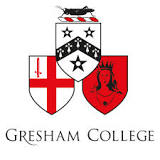Category: Philosophy business
Commercial Philosophy: Science or Religion?
There are two types of people in the world - those who believe in markets and those who don't. Debate on the role of markets in society has taken on religious attributes. Saints or crooks? Public sector versus private sector? Rawls or Nozick: liberty or distribution? Regulated versus unregulated? Surely there is a gap in the middle for a more scientific approach to commerce, but what might it look like and shall it arrive in time?
Corporation Tax or Income Tax: Which is the greatest con?
Taxation is arguably, the greatest intervention of government in the economy. There is much tinkering, but little reform. This lecture explored how abolishing corporation tax or implementing consumption tax, along with other radical suggestions, might increase the economy, the tax take and societal equity.
Enclosures of the Mind: Governing the Intellectual Commons
We are living in an age of remarkable intellectual property appropriation - copyright, trademarks, patents and commercial secrets grow at an unprecedented rate. However, is this right or appropriate? Do the new owners deserve these rights, what might it mean for society, are there alternative ways of governing intellectual property - who wins and who loses? This lecture will explore one of the thorniest areas of the modern economy and question whether global advancement needs 'closed source', or should go increasingly 'open source'.
How can you have too much choice?
Choice is good, right? Consumer choice or voter choice - we will see how increasing choice can, paradoxically, narrow the range of possible outcomes. We will celebrate complexity in decision-making and examine some new approaches emerging to help make better choices.
HOW TO GET AHEAD IN COMMERCE: SURE-FIRE WAYS TO MAKE MONEY
One school of thought says that markets are just casinos. Another school says that hard work and intelligent thought will pay rewards. The smartest school says don't work, just own the casino. So what are the guaranteed ways to make money, what are the successful habits of money-makers, and what can we learn that might help us towards a theory of commerce (before we make bags of money)? Along the way we'll learn a lot about competition, scarcity, information failure and externalities.
LIQUIDITY: FINANCE IN MOTION OR EVAPORATION?
House prices stuck? Not enough liquidity. Inflation rising? Too much liquidity. Whenever global economic trends fail to flow with the theory, economists and financial observers invoke liquidity, in the same way that physicists invoke dark matter and dark energy to explain problems with the origins of the universe. This lecture explores the various definitions and explanations of liquidity, concluding with some thoughts on why this watery concept is so important.
REGULATING THE ABOVE AVERAGE: LUCK OR SKILL?
Considered thinkers from Mandelbrot ('fractals') or Keillor ('Lake Wobegon Days') to Taleb ('Black Swans') point out the absurdity of more than half of us being 'above average'. Yet financial service salesfolk presume that the financial world is full of geniuses who perform, on average, 'above average'; at the same time accountants assume everything can be marked to fair value. We shall seek out related fallacies and pose the question, 'Do these people lack intelligence or integrity?' Taking contrarian paths we uncover some disturbing points about financial regulation.
Why do people play the Lottery? Make up your mind!
It has often been said that greed and fear drive the markets. This lecture explored behavioural finance, including how human choices can have adverse economic effects, why bubbles grow and how the Nobel prize-winning Prospect Theory can help you make money from 'regression to the mean'.
